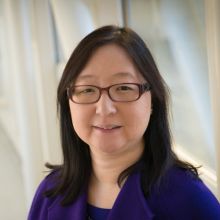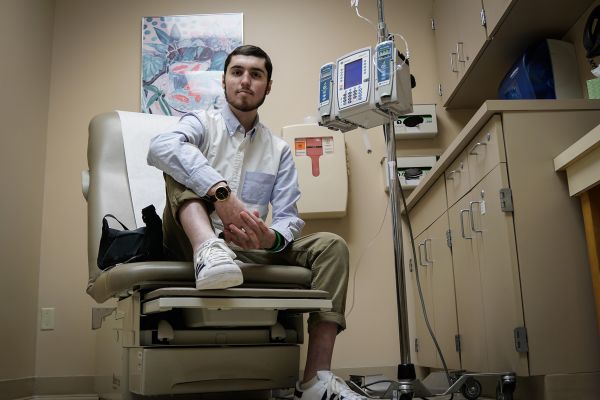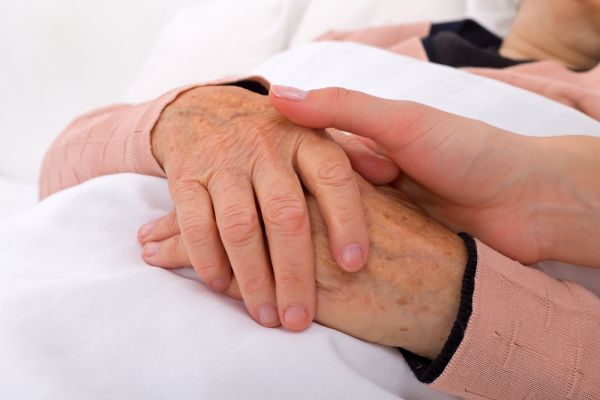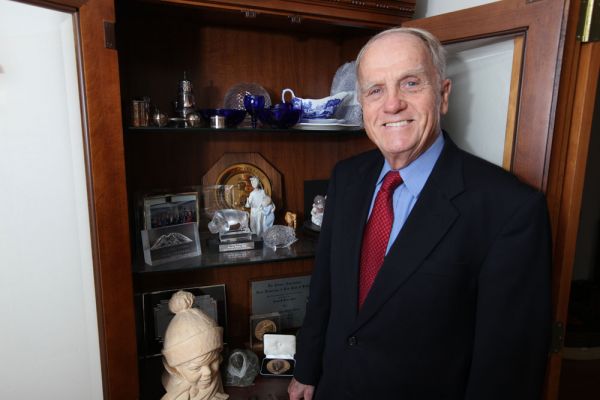Of the four main leukemia types, Acute Myeloid Leukemia (AML) is a surprisingly sneaky and speedy condition. The disease can develop in a matter of days or weeks, while any warning symptoms of fatigue, fever and listlessness are easily mistaken for the common cold or the flu.
Because of AML’s aggressive nature, it traditionally requires aggressive—and immediate—treatment that involves intensive, high-dose chemotherapy and many weeks in the hospital. For older patients, however, such grueling treatment isn’t always promising, and many are mistakenly advised that their time and options are limited. “Unfortunately, some older people newly diagnosed with AML have been told to decline treatment, say their goodbyes and go straight to hospice,” says Eunice Wang, MD, Chief of the Leukemia Service at Roswell Park Comprehensive Cancer Center.
New therapeutic approaches—available through clinical trials at Roswell Park—can offer older patients with AML better, less rigorous options, and possibly not just more time, but months, maybe even a few years of good, quality life with their loved ones, explains Dr. Wang.
“These treatments include low-dose chemotherapy regimens, where patients can stay at home with their families and commute to Roswell Park only for transfusions. We have other options now in the form of a pill taken once or twice a day that have been associated with longer survival,” says Dr. Wang. “Patients diagnosed with AML are generally in their 60s or 70s, and more than half of the AML patient population is over 65. The advancements in experimental therapies have made treatment much more manageable, regardless of age.”
Never miss another Cancer Talk blog!
Sign up to receive our monthly Cancer Talk e-newsletter.
Sign up!One of the new treatments currently in a clinical trial at Roswell Park works by blocking or "turning off” certain leukemia cells that have certain genetic mutations, explains Dr. Wang. “AML, for example, has a lot of different mutations. With genomic profiling, we can determine whether a patient’s leukemia has mutations of certain genes, such as FLT3, IDH2 mutations,” she says. “We have specific inhibitors that can be taken orally as pills that block the cells with those mutations from growing. We've found that 10-50 percent of patients taking the inhibitors have their leukemia respond and in many cases go into remission.”
With the exploration of new treatments, Dr. Wang stresses the importance, regardless of your initial diagnosis, of seeking a second opinion at a National Cancer Institute-designated Comprehensive Cancer Center like Roswell Park Comprehensive Cancer Center. “At Roswell Park, we have a team of leukemia specialists, including pathologists and clinicians who will analyze the disease and design a treatment plan that is right for the patient,” says Dr. Wang.
Age shouldn’t discourage AML patients from participating in clinical trials. “We learn more about this disease every single day. These newer therapies can be taken in the comfort of the patient's home and are specifically geared to be less toxic and better tolerated than high-dose intensive intravenous chemotherapy,” says Dr. Wang.
“We here at Roswell Park have years of experience caring for older patients to make therapy both tolerable and successful for these patients. It is sort of a travesty that patients are not told they have the option to come and see us to have that discussion and have those options available to them.”




